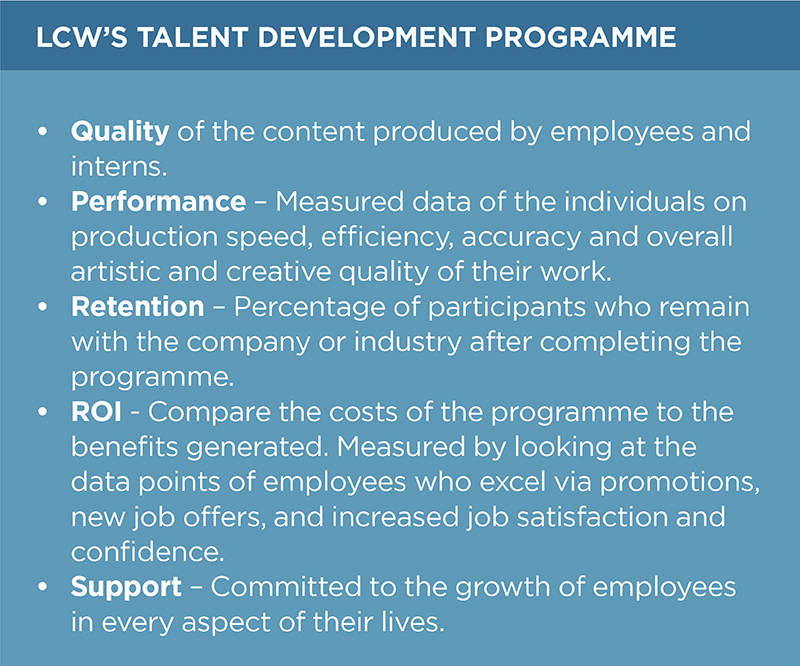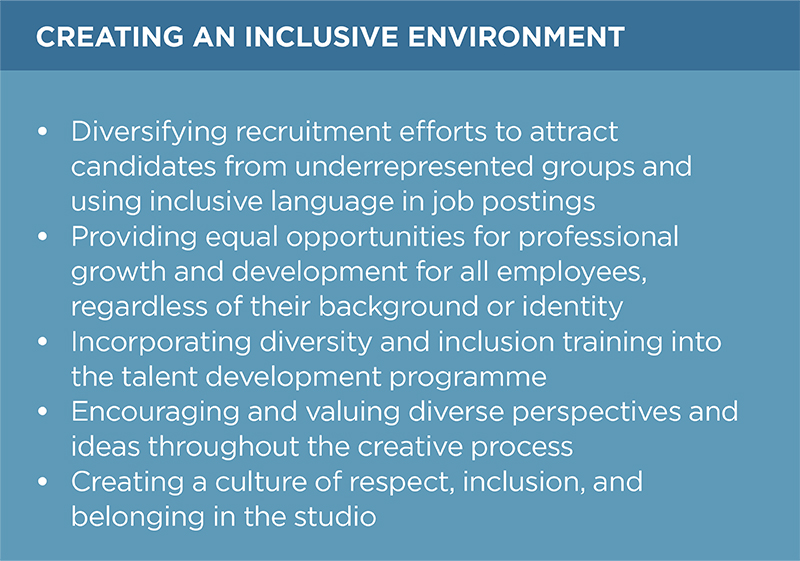
Animation has been around long before the invention of motion pictures. For centuries, cultures around the world have told stories and relayed important messages through animation, whether it be two-dimensional drawings or three-dimensional figures.
Malaysia is no exception, with thousands of talented animators practising their craft locally. It's only a matter of time before these creative minds are recognised on a global scale for their brilliance in storytelling and innovative artistry.
 Best Web/App Series for the production of My Little Pony – Tell Your Tale at the 2023 Kidscreen Awards in Miami.
Best Web/App Series for the production of My Little Pony – Tell Your Tale at the 2023 Kidscreen Awards in Miami.
Lil Critter Workshop (LCW) is one of the flagbearers of this new dawn. Walid Omar, the Founder of Lil Critter Workshop, a Malaysian animation house, has been part of the audio production industry since 1995. He travelled from the UK to Malaysia in 2004 with the mission of establishing his first studio. Since 2006, he has collaborated with many different animation studios in Malaysia and observed the potential growth and creativity this sector could offer. This inspired him to work closely with some animation pioneers in Malaysia.
In 2013, Walid Omar, alongside co-founders Brian Chong and Lorna Henderson, had a mission to revolutionise the Malaysian animation industry. With their combined knowledge of the ever-evolving animation landscape, they used their expertise to kickstart what is now known as Lil Critter Workshop (LCW) – a production house that focuses on creating innovative animations and designs for digital storytelling media. The trio's success in starting up LCW relied heavily on their dedication to providing high-quality content that incorporated cutting-edge technology, compelling storylines and strong visual imagery.

Hogie the Globehopper - the first Malaysian animation aired on Netflix.
MDEC’s connection
Walid said: “LCW is a prime example of how MDEC's innovative programmes and roadmap have propelled start-ups into competing on a global stage. For us, it all began with a development grant project that I have to admit didn't take off. We learned valuable lessons from that experience. Winning the Intellectual Property Creators Challenge (IPCC) supported our digital-first project, Outlaw Dark.
“IPCC was a great example of collaboration between the government and industries in seeking new Malaysian talent.” The numerous market access missions initiated by MDEC helped LCW tremendously, with the Asian Animation Summit (AAS) being the standout event that catapulted its brand and reputation globally. “At AAS, we presented fresh ideas every two years, forging valuable contacts that became service clients, partners, and investors.”
The most impactful catalyst was the Digital Content Grant. The animation house received the grant for Hogie the Globehopper (the first Malaysian animation on Netflix) and Buck and Buddy, which aired on Cartoon Network and subsequently won an Asian TV award for best 2D Animated series. Both shows firmly cemented their creative and production abilities worldwide. He added: “Since Buck and Buddy's completion, our company's growth has been exponential. MDEC has been instrumental in our success; we couldn't have done it without them.”

Continued success
The 2023 Kidscreen Awards in Miami was a momentous occasion for LCW, as they won the Best Web/App Series for their production of My Little Pony – Tell Your Tale for eOne. This marked an incredible milestone for Malaysian animation studios, as it was the first time a studio from Malaysia had won such a prestigious award. It also highlighted that Malaysian animation studios are becoming increasingly competitive on an international level.
Despite taking a long-term approach that may take a while to see results in, they believe it contributes to building client relationships, primarily through small projects that allow them to develop creative and technical skills and manage production and properties organically. The years of profile building and production values have attracted Hasbro’s Entertainment One (eOne), which they hit off by producing the award-winning My Little Pony.

Buck and Buddy won an Asian TV award for best 2D Animated series.
“Over our first five years, LCW earned its stripes. Thanks to MDEC's brilliant programmes, such as buyer fly-in initiatives, market missions and content grants, we had a chance to network and get our original shows on major TV networks. These experiences grew our brand awareness and connected us with key industry players,” Walid said.

Demand for talent
Malaysia's presence in the games and animation scene is undeniable, with its rapidly growing entertainment industry creating a high demand for talented professionals. This has sparked an urgent need for educational institutions to stay ahead of the curve and provide industry-ready graduates to meet these demands. By continuously engaging with the industry and curating skill sets and technology modules essential to meet industry demands, educational institutions can ensure they are prioritising the adaptation of their curriculums to remain relevant.
Malaysia has distinct advantages over our neighbours when it comes to the high-growth entertainment industry; our proficiency in English, advanced digital infrastructure, robust legal systems, and highly skilled talent pool make Malaysia an attractive hub for international productions. These factors combined have enabled Malaysia to leave an indelible mark on the international games and animation scene, making it a major player as well as a centre of excellence for this thriving sector.
To further aid Malaysia's progression towards becoming a world leader in the games and animation space, educational institutions must continue to equip students with the necessary skills and knowledge needed for success in the industry, Walid added.
Future-proofing
It is essential for companies to keep up with the times, especially when it comes to digital content. Developing a digital-first strategy can help propel businesses ahead of their competition, Walid said. With prominent investors looking to emulate Cocomelon’s success story and YouTube revenues declining, digital platforms and social media are becoming increasingly important avenues for content producers.
One way businesses can develop digital creative talent is by identifying and educating their teams and providing them with the skills they need to create next-gen content that resonates with today’s audiences. This may include case studies on successful content production or research & development into new technologies and tools that help create compelling stories. Companies should also encourage regular creative discussions amongst their team members as part of a talent development programme.

Diversity & inclusion
As the workforce continues to become increasingly diverse and inclusive, companies are taking note. In order to create a more dynamic, innovative environment that benefits both their business and their employees, many organisations are actively promoting diversity and inclusion in their talent development programmes.
“By actively promoting diversity and inclusion in our talent development programmes, we aim to create a more dynamic and innovative environment that benefits our company and the employees. A diverse and inclusive environment not only helps companies attract and retain top talent from a wider pool of candidates but also brings various perspectives and experiences that can contribute to more creative and innovative content.”

Walid concludes: “MDEC plays an integral role in igniting the digital creative spirit of Malaysia - from nurturing emerging talent to empowering studios with the resources and infrastructure necessary for them to make a global impact. Through its efforts, we are seeing Malaysian creativity blossom into works that can compete regionally and globally on original IP and production services.”

 Best Web/App Series for the production of My Little Pony – Tell Your Tale at the 2023 Kidscreen Awards in Miami.
Best Web/App Series for the production of My Little Pony – Tell Your Tale at the 2023 Kidscreen Awards in Miami.




